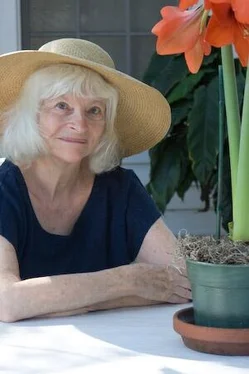Paul saw that it was no use. To the next old friend who asked what he had been doing with himself in southern California (this one a man) he replied, as if making a joke, that he had “got somewhat involved” with a pink-haired movie starlet and the wife of a Chinese exterminator.
He hadn’t been so great with Glory either, Paul thought. From her point of view they had been friendly conspirators, taking a well-deserved and enjoyable revenge together. If she had known her suspicious were false, she probably wouldn’t have gone to bed with him. Whereas for him the incident had been a matter of opportunism. He had no right really to complain that the relationship was shallow, because he had made it so himself out of incuriosity and greed. The truth was that, having come to Los Angeles in the spirit of an explorer, he had lost track of his own standards and finally almost gone native; doing so, like most anthropologists, with a conspicuous lack of decency and grace.
There was one more thing, worst of all: the way he had treated Katherine. He had insisted that they come to Los Angeles—well, that was all right: even now he didn’t regret going there, and once he got safely back he would probably come to appreciate what he had learned there more and more. He didn’t think he should have left Katherine alone in Cambridge, but once he had got her out there he should have been much more patient with her fears, her loneliness, even with her sinus trouble; he should have tried harder to make her life tolerable. (For instance, he should have tried to find some friends for them that she could have talked to, other transplanted New Englanders. There were people like that around, but he had avoided them deliberately, just as he avoided Americans abroad.)
Never mind; he would make it up to her. He was taking her back now, and she would never have to see southern California again. How happy she would be in Convers! The picturesque old houses, the green forests and fields that he had promised to Glory, who had no use for them, were all there for Katherine. The faculty apartment he had been shown backed onto a wide, mowed lawn ending in open woods; he saw Katherine running across the grass towards him there, smiling, her arms full of leaves and wild flowers.
It was Katherine that he really loved, Paul thought, and he felt in his wallet again for her picture, which he had, so to speak, rediscovered within the last few days. Hers was a real, a classic beauty, subtle, fine, and private—not blatant and public like the Hollywood sort: Glory, for instance, was most beautiful at a distance. When you got really close to her you could see that her bright hair was coarse and dyed; she had freckled, flawed skin. Katherine, on the other hand, was invisible at fifteen feet; but her skin and hair were fair and fine, and every detail delicately perfect.
It was almost dark out now. The whining of the jet’s engines had changed key; they were over Los Angeles. Paul looked down at the city, a black plain streaked with smoke and colored fights. He felt a faint anxiety at having left Katherine alone in such a place, even for a few days; he was glad to be getting back to her.
Paul had not asked his wife to meet him at the airport. It was a long way, and the telling of his news and her reaction to it would be more delightful staged in their own living-room. Too impatient after the delays of landing to wait for the bus, he got into a taxi, gave his address, and settled back to pleasant anticipation.
“Here y’are.” The taxi had stopped on the wrong street, next to a great ugly hill of bare earth. Then Paul looked out the other window, and saw his house. He got out of the cab, realizing what had happened. When he left Mar Vista four days ago, the bulldozers had been at work leveling the lots across the street, while trucks brought in fill dirt. This process had simply continued; the ground was being raised so that the new freeway, like all the others, would cross Los Angeles above the house-tops.
Still, there was something horrible about that long heap of dirt lying there in the street light with machines squatting on it. Even though he knew that the people and even the houses had been moved away, he had the fantasy that everything that had once been across the street was there still, buried beneath the dirt: the flowering bushes, the stucco walls and tiled roofs, the kitchen tables, the lemon trees, the children on their tricycles.
The lights were on in his house, and his car was in the driveway; the same old Ford that he had brought out from Boston. After all, he had never got round to trading it in for a Buick, a hot rod, a Jaguar, or a Thunderbird. But Katherine was out; she had left him a note on the mantelpiece:
Welcome home—
I’ve gone to Iz and Glory Einsam’s reunion party—
meet me there.
Irritated by the delay of the scene he had planned, and the change in the set against which it would have to be played, Paul washed perfunctorily, changed his shirt, found his car keys, and set out for Hollywood.
It was only about nine o’clock Los Angeles time, but in Cambridge it was midnight. No wonder he felt unsettled in his stomach and a little tired. As he drove along the freeway, though, Paul smiled and began to feel better. He was amused and pleased, he found, that Glory was reconciled with her husband; he was glad that she should be happy, and it relieved him of any obligation. Moreover, it was a final proof that there was nothing to Glory’s suspicions, for if Katherine really had been involved with Dr. Einsam, she would certainly not be going to this party. Not that he had ever thought she was, of course.
Paul located Glory’s house easily by the number of cars parked along the street and the noise and music coming over the fence. It was a very large party, he saw, as the maid showed him in (after checking his name against a list). The long pink living-room was full of people, mostly movie types, and they were standing in the hall and crowded around the bar in the dining-room. Opposite him doors stood open onto a terrace, and he could see more people out there.
None of them was Katherine. After he had looked into all the rooms at least twice, and walked round the pool, he had to admit, with considerable irritation, that he couldn’t find her. Nor, for that matter, could he find Glory or Glory’s husband. He knew absolutely no one here; it was as if he had got into the wrong house.
Probably what had happened, he concluded, was that Katherine hadn’t arrived yet, but (having thoughtfully left the car for him) was still on her way to Glory’s by some slower means of transport. He must simply wait for her. Holding a drink, he wandered out towards the pool. It must have been fixed recently, for it was full, spotlighted both above and below the water, and slowly filling with the debris of the party. Paper napkins, cigarette butts, and a few potato chips floated on the surface; their shadows skimmed over the white tiles below like pale fish.
Without making much effort, Paul fell into several curiously meaningless conversations. At one point, for example, he found himself talking to Glory’s press agent about airplane fares, at another to an odd pair of women: a pretty plump little Japanese in a cotton shirtwaist named Mrs. Haraki, and a handsome bony American named Mrs. Smith who wore a silk kimono and had chopsticks skewered through her hair. They were trying to identify the movie stars present, most of whom Paul had never heard of.
It was now after ten o’clock; Katherine should have come. Unless, of course, she had already left, feeling too nervous and shy to bear a party like this any longer alone. But in that case, surely she would have left a message?
Paul went back into the house, where he got another drink and spoke to a couple named Dodge who said they were college teachers, though Paul had taken them both for actors. He asked Mr. and Mrs. Dodge if they had seen his wife.
Читать дальше












